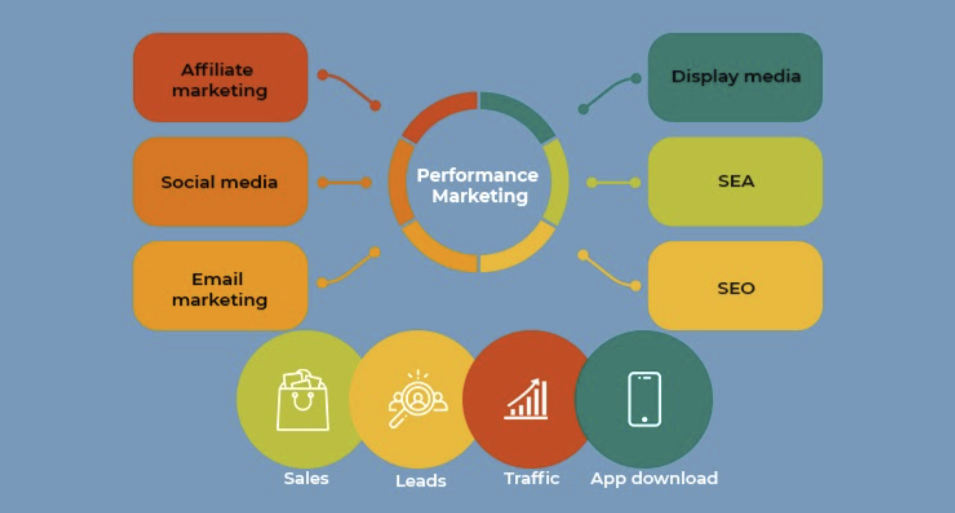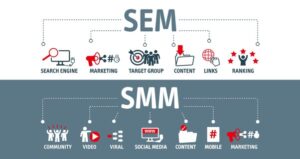Is Performance Marketing The Right Strategy For Your Brand?
Brands are constantly seeking innovative strategies to stay ahead of the competition and connect with their target audience effectively. One such strategy that has gained significant traction in recent years is performance marketing. This dynamic approach focuses on measurable and tangible results, making it an attractive option for brands looking to maximize their return on investment (ROI). In this blog post, we will delve into the world of performance marketing, exploring its key components, benefits, and considerations to help you determine if it’s the right strategy for your brand.
Understanding Performance Marketing
Performance marketing is a data-driven approach to online advertising that emphasizes measurable results. Unlike traditional marketing, which focuses on brand awareness, performance marketing centres on specific actions, such as clicks, conversions, or sales. Key components include pay-per-click advertising, affiliate marketing, search engine marketing, social media advertising, and email marketing.
The appeal lies in its ability to provide a clear return on investment (ROI) through real-time tracking and optimization. Brands can reach targeted audiences, allocate budgets efficiently, and continually refine strategies based on performance metrics. Understanding performance marketing is crucial for businesses seeking a cost-effective and results-oriented approach in the ever-evolving digital landscape.
Key Components of Performance Marketing
- Pay-Per-Click (PPC) Advertising: PPC advertising is a cornerstone of performance marketing. Platforms like Google Ads and social media channels allow advertisers to bid on keywords and pay only when users click on their ads. This model ensures that brands are only paying for actual engagement with their content.
- Affiliate Marketing: This involves partnering with affiliates or third-party entities who promote your products or services in exchange for a commission on sales generated through their efforts. Affiliate marketing aligns incentives, as affiliates are motivated to drive actual sales rather than just traffic.
- Search Engine Marketing (SEM): SEM combines organic search engine optimization (SEO) efforts with paid advertising to enhance a brand’s visibility on search engine results pages. It includes tactics like keyword targeting, ad copy optimization, and landing page design to drive conversions.
- Social Media Advertising: Platforms like Facebook, Instagram, Twitter, and LinkedIn offer targeted advertising options based on user demographics, interests, and behaviours. Advertisers can track the performance of their campaigns in real time, optimizing them for better results.
- Email Marketing: Performance-oriented email campaigns focus on specific actions such as clicks, conversions, or purchases. Marketers can track metrics like open rates, click-through rates, and conversion rates to measure the success of their email campaigns.
Benefits of Performance Marketing
- Measurable ROI: One of the primary advantages of performance marketing is its emphasis on quantifiable results. Brands can track and measure the performance of each campaign, allowing for data-driven decision-making and optimization.
- Cost-Effective: Performance marketing often operates on a pay-for-performance model, meaning advertisers pay only when desired actions are taken. This makes it a cost-effective strategy compared to traditional advertising methods, where costs are incurred regardless of outcomes.
- Targeted Audience Reach: With tools like audience segmentation and targeting, performance marketing enables brands to reach specific demographics or user segments. This ensures that marketing efforts are directed towards those most likely to convert.
- Real-Time Optimization: The ability to monitor and analyze campaign performance in real time allows marketers to make adjustments on the fly. This agility ensures that resources are allocated efficiently, maximizing the impact of marketing efforts.
Considerations Before Embracing Performance Marketing
- Clear Objectives: Before diving into performance marketing, it’s crucial to define clear and measurable objectives. Whether the goal is to drive sales, increase brand awareness, or generate leads, having a well-defined purpose will guide the overall strategy.
- Understanding the Audience: Successful performance marketing relies on a deep understanding of the target audience. Marketers must leverage data and analytics to identify audience behaviours, preferences, and pain points, tailoring campaigns accordingly.
- Budget Allocation: While performance marketing can be cost-effective, it still requires a budget. Brands need to allocate resources strategically, balancing spending across different channels and campaigns to achieve the desired results.
- Continuous Optimization: Performance marketing is an ongoing process that requires constant monitoring and optimization. Marketers should be prepared to analyze data, identify trends, and make data-driven adjustments to ensure continued success.
- Integration with Overall Marketing Strategy: Performance marketing should complement and integrate seamlessly with the overall marketing strategy of the brand. It’s essential to ensure consistency in messaging and branding across all channels for a unified customer experience.
Conclusion
As the digital marketing landscape continues to evolve, performance marketing remains a potent strategy for brands seeking measurable results and a positive ROI. Its emphasis on accountability, precision targeting, and real-time optimization makes it an attractive option for businesses of all sizes. However, it’s essential to carefully evaluate whether performance marketing aligns with your brand’s goals, target audience, and overall marketing strategy before fully embracing this dynamic approach. When implemented thoughtfully, performance marketing has the potential to propel your brand to new heights in the competitive digital marketplace.

















